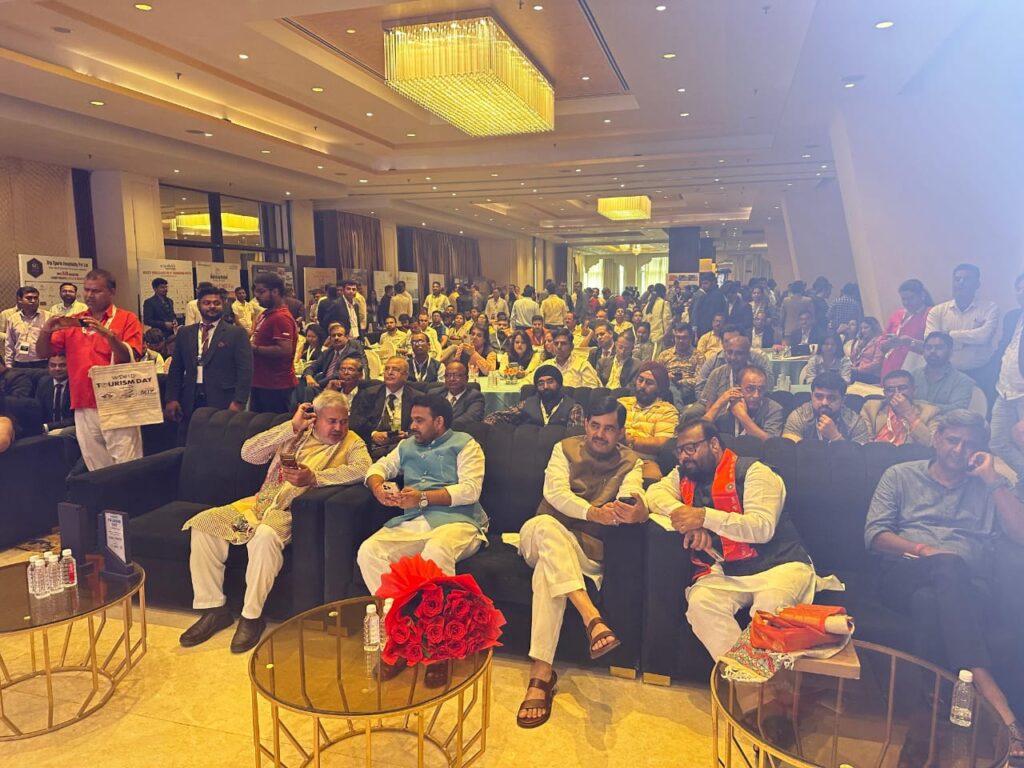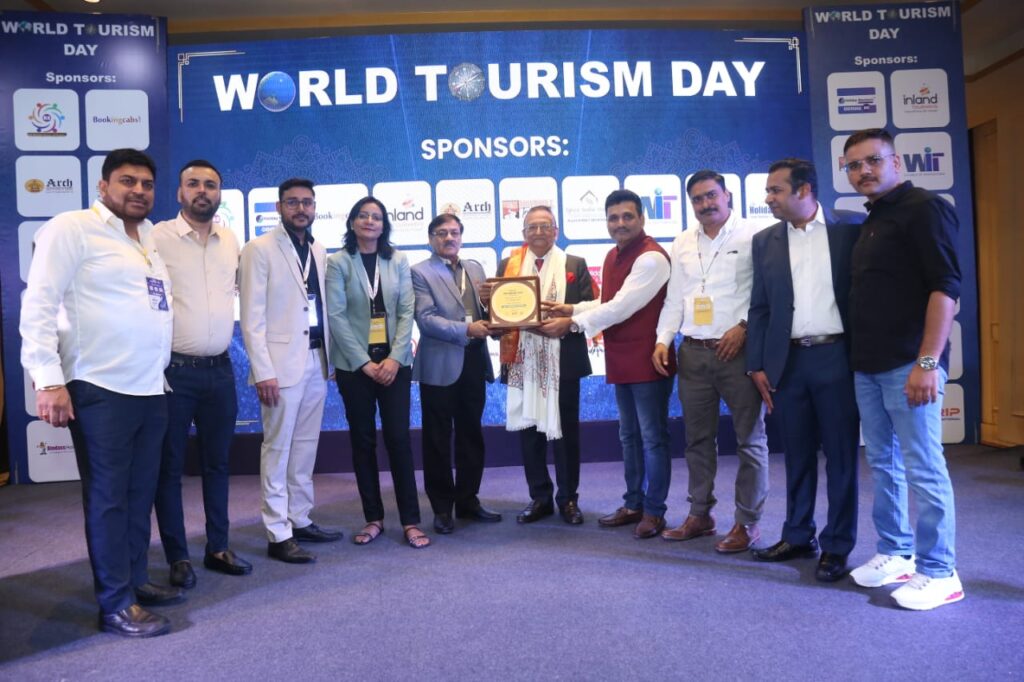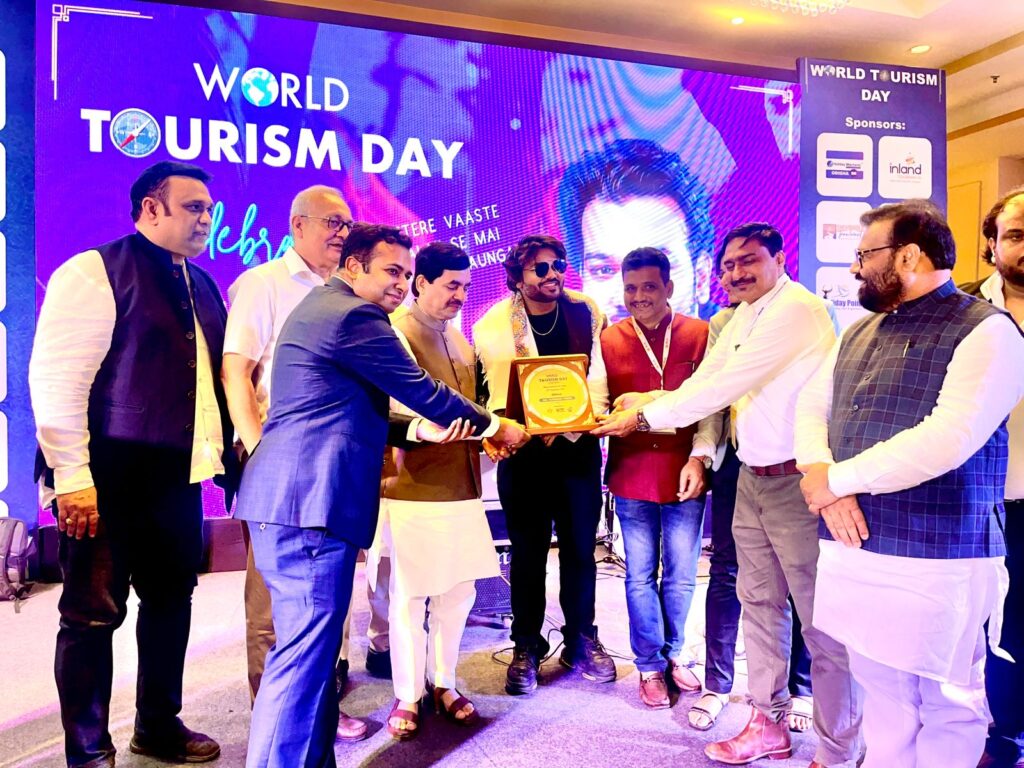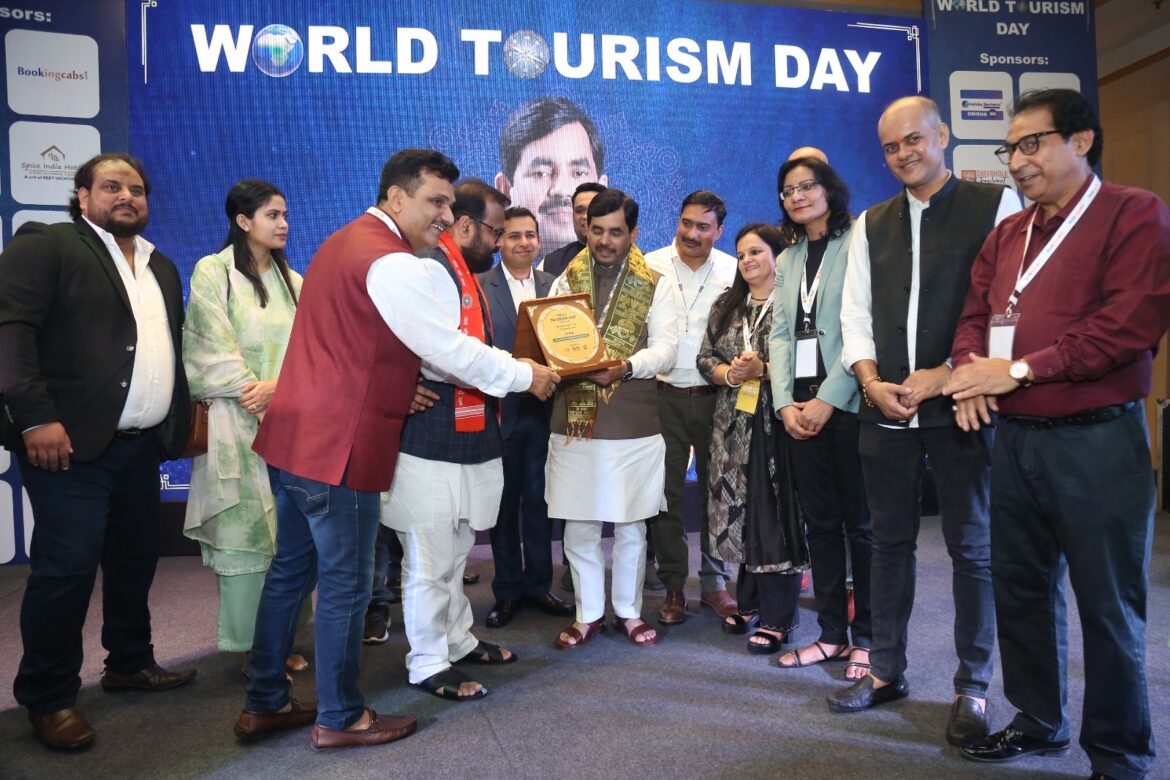The World Tourism Day 2024 celebration held on September 28 in Dwarka, Delhi, marked a significant occasion that brought together key stakeholders in the travel trade industry. Organized by the Global Indian Travel Federation (GITF) in partnership with the Purvanchal Paraytan Association and Destiny Drive, this event represented the fourth edition of its kind, designed to strengthen ties and foster collaboration among travel professionals. With over 140 industry leaders in attendance, the event highlighted the collective efforts and unity within the tourism sector.
A Day of Celebration and Recognition
Minister Shahnawaz Hussain praised the efforts of the tourism industry, saying, “Tourism plays a pivotal role in the growth and development of our nation. It not only showcases the rich cultural heritage of India but also creates employment opportunities for millions. I congratulate the Purvanchal Paraytan Association and all the industry leaders present here today for their continued dedication to this sector.”
Subash Goyal, the Chairman of STIC Travel, also shared his insights during the event, further enriching the dialogue on the economic implications of tourism. His perspective underscored the necessity for ongoing investment in the industry to unlock its full potential and drive sustainable growth.

Strengthening Bonds Among Industry Professionals
The World Tourism Day celebration served as a vital platform for networking and collaboration among various segments of the travel trade. From tour operators to travel agents, hospitality experts, and destination marketers, the event facilitated meaningful exchanges of ideas and best practices. This gathering not only strengthened existing relationships but also fostered new partnerships aimed at enhancing the overall tourism experience in India.
The support from co-sponsors such as RS Globle, Holiday Mechanic, Booking Cabs, and Spice India Hotels, among others, played a crucial role in the event’s success. Their contributions underscored the collaborative spirit that defines the tourism industry in India. Each sponsor brought unique expertise and resources, enriching the discussions and ensuring a diverse range of perspectives.
The Impact of Tourism on India’s Economy
Tourism is not merely a leisure activity; it is a driving force behind economic growth, particularly in a country as culturally rich and diverse as India. The sector generates significant revenue, creates jobs, and promotes cultural exchange. It contributes to urban and rural development, empowering local communities and ensuring that the benefits of tourism reach a broader audience.
As Minister Hussain pointed out, the tourism sector’s impact extends beyond economic metrics. It plays a crucial role in showcasing India’s diverse heritage, from the majestic Taj Mahal to the serene backwaters of Kerala and the bustling streets of Jaipur. Such landmarks not only attract international tourists but also foster national pride among locals.

Future Directions for the Tourism Industry
In light of the discussions held during the celebration, it is clear that the tourism industry must focus on several key areas to thrive in the coming years:
1. Embracing Technology
The integration of technology in tourism is no longer optional; it is essential. From online booking systems to virtual tours and augmented reality experiences, leveraging technology can enhance the tourist experience and streamline operations. Industry leaders are encouraged to adopt innovative solutions that improve efficiency and customer satisfaction.
2. Sustainable Practices
Sustainability is a growing concern in the tourism sector. As travel continues to rise, the impact on the environment becomes increasingly significant. Stakeholders must prioritize sustainable practices, including responsible waste management, eco-friendly accommodations, and community-based tourism initiatives. By doing so, the industry can ensure that tourism remains viable for future generations.
3. Marketing and Promotion
Effective marketing strategies are crucial for attracting tourists to India. The travel trade must invest in digital marketing, harnessing the power of social media and search engine optimization to reach a global audience. Engaging content that showcases India’s attractions and experiences can significantly enhance the country’s visibility in the competitive travel market.
4. Collaboration Across Sectors
Collaboration among various sectors, including government bodies, private enterprises, and local communities, is vital for the growth of tourism. Joint initiatives can lead to more comprehensive strategies that address challenges and capitalize on opportunities within the industry.

Conclusion: A Unified Vision for Tourism
The World Tourism Day 2024 celebration in Delhi was not just an event; it was a testament to the resilience and unity of the travel trade community in India. By bringing together diverse stakeholders, the event highlighted the collective commitment to advancing tourism as a key driver of economic growth and cultural exchange. As the industry looks toward the future, the focus on innovation, sustainability, and collaboration will undoubtedly play a pivotal role in shaping the landscape of tourism in India.
As we celebrate the achievements of the past, we must also embrace the challenges ahead, ensuring that our tourism industry remains vibrant, inclusive, and sustainable. The path forward is bright, fueled by the dedication and passion of those who are committed to making a difference.
Read more at TravelMail | Follow us on Facebook | Twitter | and Instagram for on-the-go news

